North Korean restaurant defectors 'were in China and left legally'
- Published
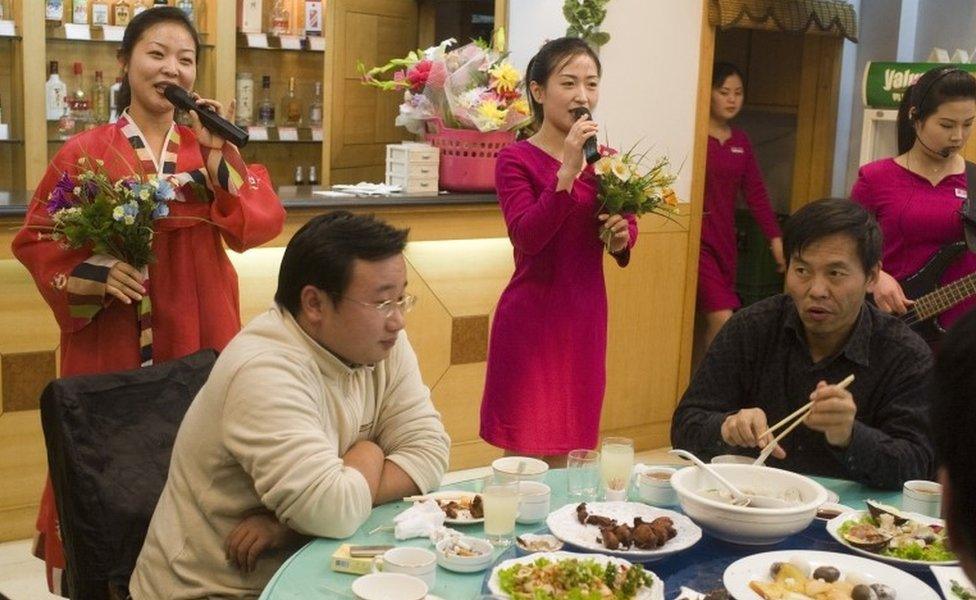
North Korea runs dozens of restaurants in other countries as a valuable source of income
China has said that 13 North Korean restaurant workers who defected to South Korea last week had been working in China and had left legally.
In a rare comment on such issues, a foreign ministry spokesman said the 13 had the right documents to exit China.
China tends to view North Koreans who escape across its border as illegal economic migrants and sends them back.
The group are now in South Korea, which provides an aid and adjustment package for all North Koreans who defect.
South Korea announced the defection on Friday, saying the size of the group was "unprecedented".
It gave no details of where they had been working nor of how they had travelled to Seoul, but said they had grown disillusioned with North Korea.
'Valid documents'
It is unusual for China and South Korea to make public comments on defections.
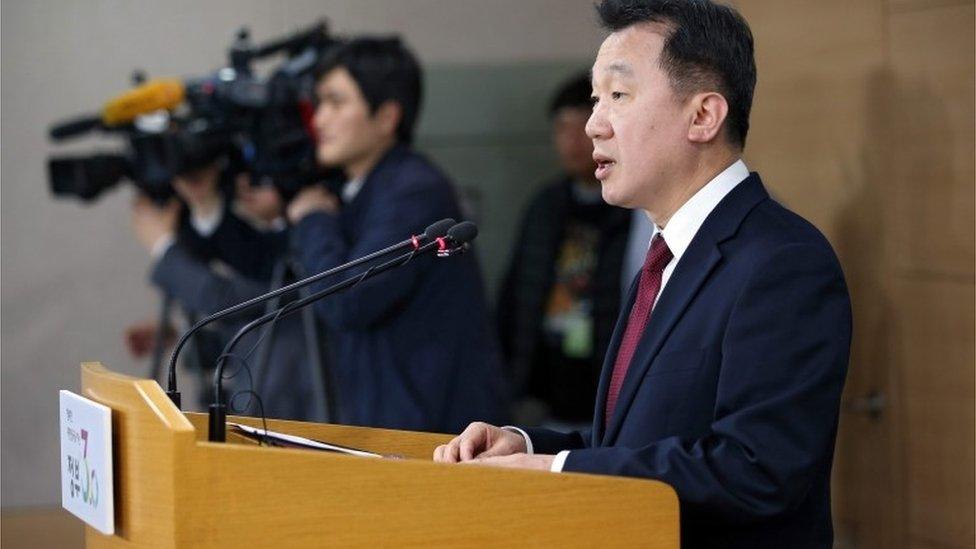
Jeong Joon-hee said the restaurant workers had grown disillusioned with North Korea, partly through watching South Korean TV
But Chinese spokesman Lu Kang told a routine news briefing on Monday that 13 North Koreans had been "found exiting the Chinese border with valid passports" on 6 April.
He said it was important to note that unlike many defectors, they all had valid identity documents and had entered and exited legally.
South Korea's Yonhap news agency cited unnamed sources as saying the restaurant was in Ningbo, in China's north-eastern province of Zhejiang.
Various media reports had previously linked the case to the recent closure of a North Korean restaurant in Danang, Vietnam.

Analysis by Stephen Evans, BBC News, Seoul
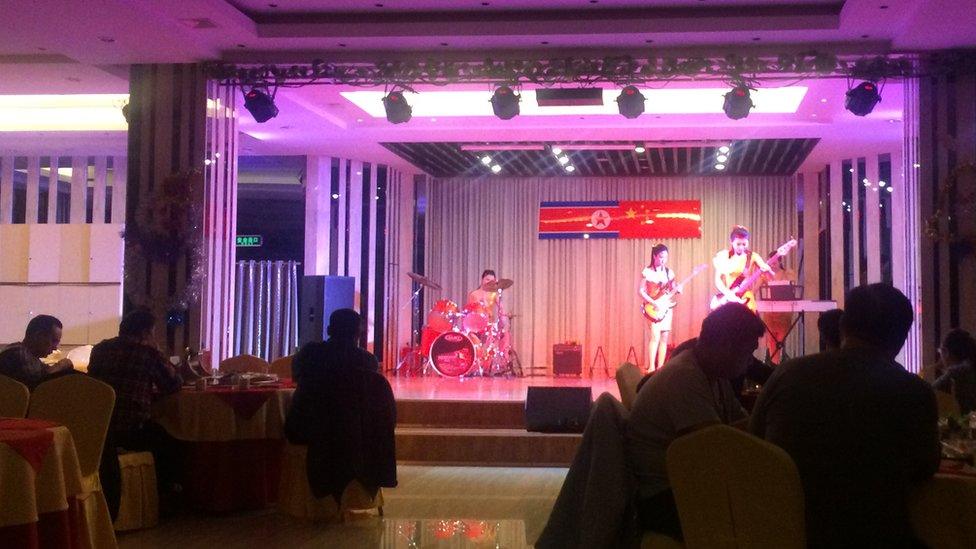
The restaurants usually put on a display of North Korean music to entertain diners
North Korea does not publicise how its restaurants outside the country operate but information can be gleaned by visitors and reports of previous defections.
South Korean media say most of these restaurants are in China and run by local entrepreneurs, with the staff provided by Pyongyang. One opened and closed and re-opened in Amsterdam. North Korea denied it wanted to open one in Scotland.
The restaurants serve traditional North Korean food and often have stylised pictures of picturesque North Korean mountain scenes but are devoid of overt propaganda.
It is not clear what the staff are paid nor what they are allowed to keep after remitting money to Pyongyang.
There have been previous defections from restaurants. In 2007, a restaurant in China was closed after a female employee was caught trying to defect.
One mystery with the latest defections: why has China been so accommodating? It says the defectors had legitimate papers so there was no need to prevent them leaving the country but that would have been true in the past too.
Is it a sign that China really does want to show its displeasure at Pyongyang where it hurts: in the coffers filled by remittances from North Korea's foreign workers?

Some 29,000 North Koreans have fled the country since the Koreas were divided at the end of the war in the 1950s, many of them crossing the border into China.
China's policy of detaining and returning defectors to North Korea, where they are likely to face torture or imprisonment, has often been criticised as a breach of its responsibilities under the refugee convention.
On Monday, South Korea announced that a senior colonel who worked in North Korean intelligence-gathering had also defected last year.
He is believed to be one of the most senior officials ever to leave.
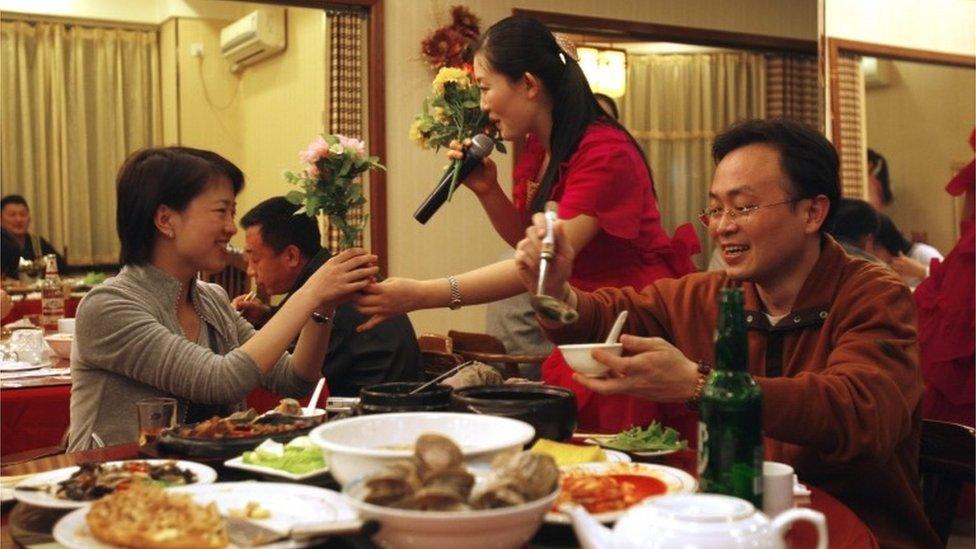
Staff in the restaurants are carefully screened to ensure their loyalty to the North Korean leadership
North Korea runs some 130 restaurants in other countries. The staff are usually chosen for their loyalty to the North Korean leadership.
The restaurants provide a much-needed source of income for North Korea but South Korea says economic reasons and tightened international sanctions against the North mean many of the businesses are struggling.
- Published11 April 2016
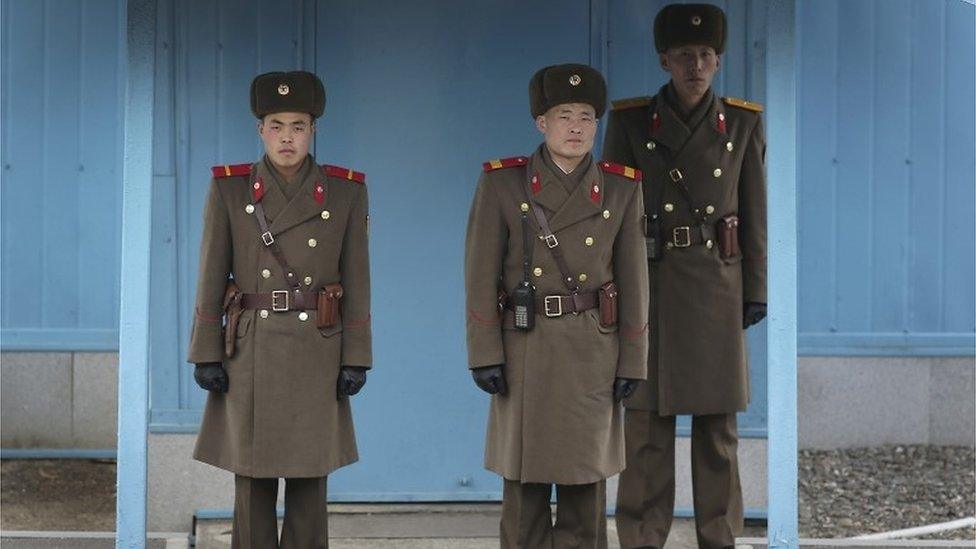
- Published5 November 2015

- Published9 June 2014
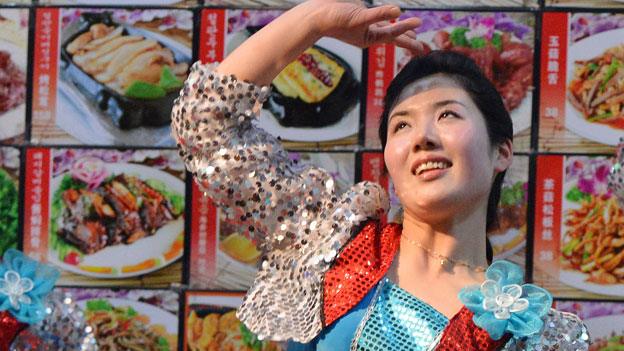
- Published5 March 2014

- Published8 July 2015
